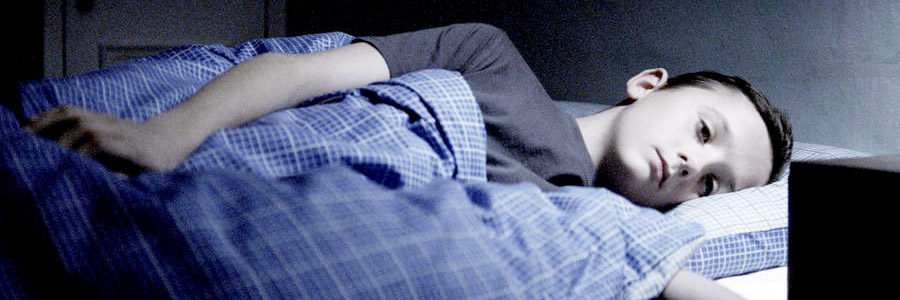
Hereafter

HEREAFTER (MOVIE)
Warner Bros.
Original release: October 22nd, 2010
Running time: 129 minutes
Director: Clint Eastwood
Writer: Peter Morgan
Cast: Matt Damon, Cécile De France, Bryce Dallas Howard, George & Frankie McLaren

Clint Eastwood has often been close to death. The number of shoot-outs and duels he survived on screen during his Western and Dirty Harry years perhaps exceeds anyone else’s. If there’s something else after the wicked are put to rest hardly seemed like a question Eastwood, or his characters, would ponder. Even as a director he’s been a stringent and adept storyteller, steering clear off clichés and fuzzy subject matters.
Hence it seemed safe to assume Hereafter would neither be a supernatural trip nor a well of psychic epiphanies. The movie is a quiet, compassionate and rather secular account of the last rendezvous we long to have with loved ones and maybe ourselves, and ultimately emphasizes life and living in the moment. Eastwood’s version of the afterlife is barely more than a cinematic translation of reports from people who escaped death by a hair: The bright light, blurry figures and the blissful feeling of closure.
An experience shared by French journalist Marie LeLay (Cécile de France) who is desperate to find answers as to what happened to her when she drowned, and was revived in the 2004 Tsunami. Her story is one of the three plots Hereafter ties together. The other two follow a reluctant psychic in San Francisco (Matt Damon as George Lonegan) and an 11-year-old twin in London who lost his brother (George and Frankie McLaren as Marcus).
It was twin Marcus who caught me in Hereafter’s stream of moments that build on each other like a puzzle of questions we rarely ask but which represent a set of common feelings about the finiteness of life, loss and the hunger for solace.
Marcus’ story is the most compelling one in Hereafter and can have even tough sceptics let go of their prejudice. His ingenious attitude and yearning to re-connect with his brother Jason are beyond suspicion, the more so as the McLaren brothers play Marcus with an extremely touching nativeness. The twin’s visits to charlatan psychics are a disturbing metaphor on the indifference and helplessness of a grown-up world unable to see with the soul.

Rather than too much ado about the living-on of souls, Hereafter stays behind the supernatural as well as the very natural possibilities of the story. Having had encounters with death myself, I can imagine that some people with similar experiences and stories would accuse the movie of trivialising the actual scope and the dimensions of the subject which is, despite all attempts of unsuspicious scientists as well as storytellers, still a taboo.
Apparently Eastwood kept his distance and didn’t want to get too close:
Writer Peter Morgan (The Queen) himself is not known for otherworldly expeditions either:
He wrote Hereafter after having lost a friend in an accident.
This epic quality reaches a literally unforeseen depth in the character of George Lonegan (Matt Damon), a psychic who seems to be the real thing but is desperately trying to get rid of his curse, as he calls it. Touching people, he can communicate with  their recently passed loved ones. Thankfully the movie leaves it open whether he actually talks to the dead or if he can just sense the state of mind of his “clients”, and therefore merely reflects on what’s right in front of him.
their recently passed loved ones. Thankfully the movie leaves it open whether he actually talks to the dead or if he can just sense the state of mind of his “clients”, and therefore merely reflects on what’s right in front of him.
With a rare kind of sensitivity and intuition, he is as lonely as the other two characters of the story, someone who is deeply unhappy with his ability. Matt Damon’s George is an evocative statement about isolation, and his clairvoyance becomes somewhat secondary. That Damon is able to merge into an ensemble of rather unknown actors is maybe no surprise but definitely adds to the quality of the film.
Despite its American make, Hereafter feels very European, not least in the way its strangely incidental finale brings together the three stories. Whether or not it’s serendipity or an improbable coincidence didn’t really matter to me. There’s a light beauty about it, especially thanks to Belgian actress Cécile de France, who plays the anchor woman turned book author Marie with a vitality that makes the issue of the Afterlife obsolete. In the here and now, at the end of the movie, I sat there and smiled.

Jonahh Oestreich
One of the Editors in Chief and our webmaster, Jonahh has been working in the media industry for over 20 years, mainly in television, design and art. As a boy, he made his first short film with an 8mm camera and the help of his father. His obsession with (moving) images and stories hasn’t faded since.
You can follow Jonahh on Twitter @Jonahh_O.
© 2022 STATIC MASS EMPORIUM . All Rights Reserved. Powered by METATEMPUS | creative.timeless.personal. | DISCLAIMER, TERMS & CONDITIONS
HOME | ABOUT | CONTACT | TWITTER | GOOGLE+ | FACEBOOK | TUMBLR | YOUTUBE | RSS FEED
CINEMA REVIEWS | BLU-RAY & DVD | THE EMPORIUM | DOCUMENTARIES | WORLD CINEMA | CULT MOVIES | INDIAN CINEMA | EARLY CINEMA
MOVIE CLASSICS | DECONSTRUCTING CINEMA | SOUNDTRACKS | INTERVIEWS | THE DIRECTOR’S CHAIR | JAPANESE CINEMA





